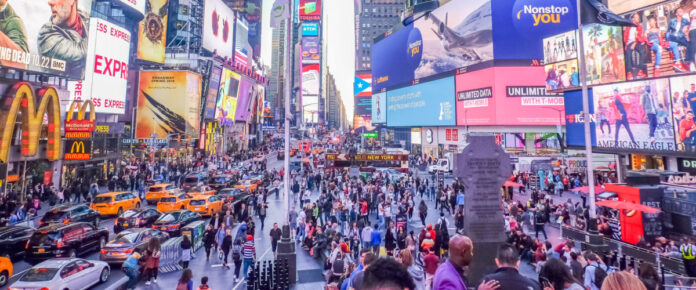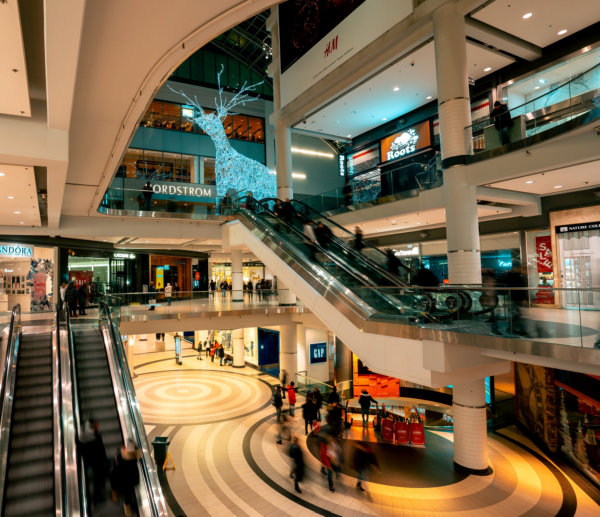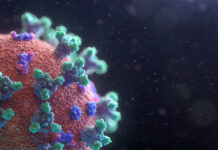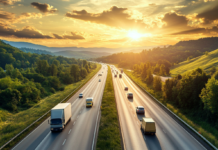
I predict that we are about three years from normal. By that, I mean it will take about three years for life in the United States to get back to something that resembles “normal.”
That prediction assumes we have a recession but not a total global economic collapse that results in a complete disruption of the supply chain, disintegration of the dollar, failure of our financial systems, and massive interruption of our collective society and individual lives.
I define normal as a return to something close to what we all enjoyed on January 1, 2020 (just to pick a date.) Here what post-coronavirus “normal” looks like:
- There is an effective and widely available vaccine or cure for COVID-19, and as a result most people treat it like the flu.
- People once again have unlimited freedom of movement. There are no lockdowns or stay home orders in the U.S. and no requirements to wear a mask.
- Most of them have a job and somewhere to live.
- Streets are busy and rush hour is back. Times Square looks as crowded as it did in our lead photo.
- Doctors, nurses, truck drivers, cops, grocery store personnel, and the many other essential workers can go to work without worrying about getting sick.
- People can visit the elderly without worries, no masks required.
- The majority of the population knows where its next meal is coming from.
- Grocery stores no longer need to limit what you can buy, how many people can enter the store at once, and there are no shortages.
- A majority of business that were closed have re-opened or have been replaced by new businesses.
- People feel comfortable eating in restaurants, even crowded restaurants.
- Concerts, sporting events, conventions and other mass-gatherings take place and people willingly attend them.
- Airplanes fill the skies and people fill hotels and vacation spots.
- Disney and at least one cruise ship company are offering cruises – and they are filling up.
- Universities offer travel abroad.
- It’s OK to shake hands when you meet someone or even hug when you run into a friend.
Lingering Psychcological Effects
We’re not going to get to normal quickly because the shock to our system and our psyche will linger even after the disease is gone. We’re going to see some serious fallout from the COVID-19 pandemic, the shutdowns and the stay-home orders, and much of it will be economic and emotional, not medical.
I’m talking things you would see in any severe recession: joblessness, homelessness, company failures, bankruptcies, boarded up restaurants, small retailers that can’t afford to reopen, delayed retirements, people buying used cars instead of new, slowing house sales, increased distrust of government officials, government bail outs, bail ins, QE everlasting. But on top of that, we’ll also have people dealing with fear, anxiety and PTSD. There may be some people that are never comfortable in a crowd or even leaving their home again.
Yes, a recovery will happen, but it is going to take years, not months. That’s why I am predicting we are three years from normal.
Normal will be Different
Once we claw our way out of this dark hole we’ve been digging, some of our habits and behaviors will have changed. For example, far fewer people go on cruises or to movie theaters. Cinemas were dying the death of 1,000 streaming services and then the coronavirus arrived like The Bride in Kill Bill striding into the nightclub with her newly forged sword. Unless there’s a new Marvel movie every few weeks, I don’t see most cinemas surviving, no matter how comfortable they make the seats. There’s going to be industry consolidation and closures.
COVID-19 may also sound the death knell for malls, which were already experiencing hard times due to changes in shopping behavior. To compete with online shopping, successful malls were repositioning themselves as “experiences” and entertainment. But how many people will want to be in a busy, crowded food court or other mall “experience?” A couple years of limited traffic due to linger COVID-19 concerns could be the final blow for malls. Many developers were on shaky footing before; those won’t have helped their balance sheets.
COVID-19 may also sound the death knell for malls, which were already experiencing hard times due to changes in shopping behavior. To compete with online shopping, successful malls were repositioning themselves as “experiences” and entertainment. But how many people will want to be in a busy, crowded food court or other mall “experience?” A couple years of limited traffic due to linger COVID-19 concerns could be the final blow for malls. Many developers were on shaky footing before; those won’t have helped their balance sheets.

Large commercial landlords, companies that own apartment buildings, and small landlords that rent out a house or two will also face bankruptcy as a result of so many businesses and people refusing to pay rent during the crisis. Unless there’s a government bailout of some sort, many of these companies will go bankrupt. It may take some time for real estate values to recover.
I predict air travel will be down for a couple years; international travel will be down even more because it will take longer for some countries to recover. Some people will simply choose to drive to their vacation rather than fly. More business will be done over the Internet rather than face-to-face, especially in the first year or two. Barring a bail out, airlines will see failures and consolidations. It’s not going to be much better for Amtrak, with the possible exception of the New York City to Washington DC run.
Remote services and fulfillment will grow in popularity. More people will be comfortable having groceries delivered or doing curb-side pickup, even when there is no threat. There will be fewer bank branches and small retail stores. You know how some dog groomers have a van and will come and visit their customers? We could see more personal services going mobile, like hair care, massages and spa treatments that make house calls. It will be more expensive, but it will feel safer, and there will be people willing to pay for that safety.
And no one will ever allow themselves to run low on toilet paper ever again.
The Impact on the Coronavirus Crisis on the Next Generation
People who lived through the Great Depression never got entirely over it and many never trusted banks again; it influenced their behavior and that of their kids. I can’t help but wonder what behaviors people who lived through this disaster will carry on and pass along to future generations. Will shaking hands go away? Will people give each other more distance when waiting in line or walking down the sidewalk? Will coughing in public be greeted with fear or scorn? Will social distancing become permanent? Will ride pools ever come back?
The 9/11 attack and the resulting wars have been blamed in part for Millennials acting, well, like Millennials. So I have to ask, what harvest will the kids today reap and carry into their early adulthood? Will we have a generation the leaves home even less than they do now? Will even more of their social lives move online or into virtual worlds, like the book and movie Ready Player One? Can we expect more of them to go to college online and then graduate to jobs that can be done remotely? Will people that prefer face-to-face interactions be resented as old-timers? Will this crisis speed up development of new technology, like virtual reality or holographic projection, to make this remote living and working even easier and more seamless?

How long will the government have to subsidize the unemployed and industries hurt by the coronavirus? Will this disaster encourage the country’s move towards socialism or result in a backlash that suppresses it? Can you imagine how long the resulting court cases will last? Or the political investigations? I’m not looking forward to that.
I can only hope some good comes from the coronavirus and the changes it wreaks. I hope our experience encourages people move out of the cities where the virus has been concentrated and help repopulate the small towns in America. I hope they reverse the trend and help bring back family-owned coffee shops, hardware stores, feed stores, and places where you can buy live bait and a cup of coffee at 5:30 in the morning. I hope people continue to plant more gardens, raise more chickens, visit more farmers markets, and become less dependent on a lengthy supply chain to fill their bellies. I hope the idea of baking your own bread and making dinner from scratch sticks around. I hope parents keep spending more time with their kids. I hope there is a resurgence of products that are made-in-America.
In short, I hope more people start acting like preppers, because America needs more people with a good head on their shoulders, a good plan in that head, and a bunch of supplies in their cupboards.
How do you define normal and when do you think America will recover from the coronavirus?
View the latest news and figures on the coronavirus outbreak.






